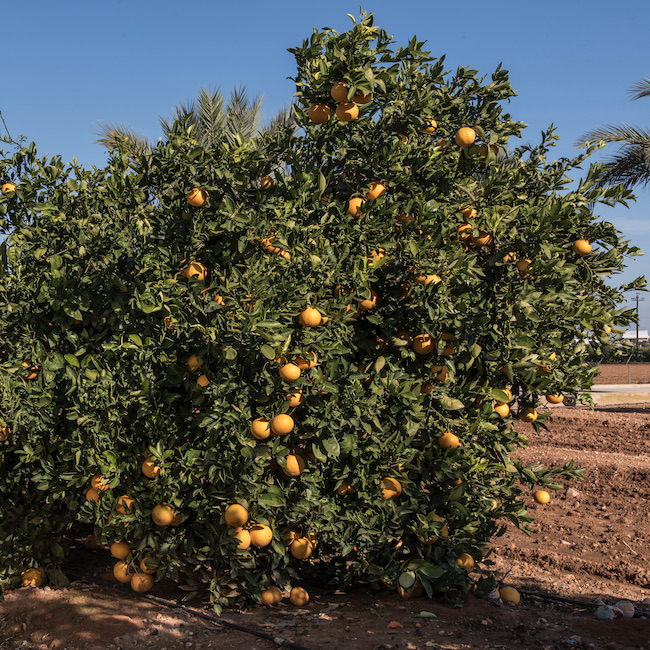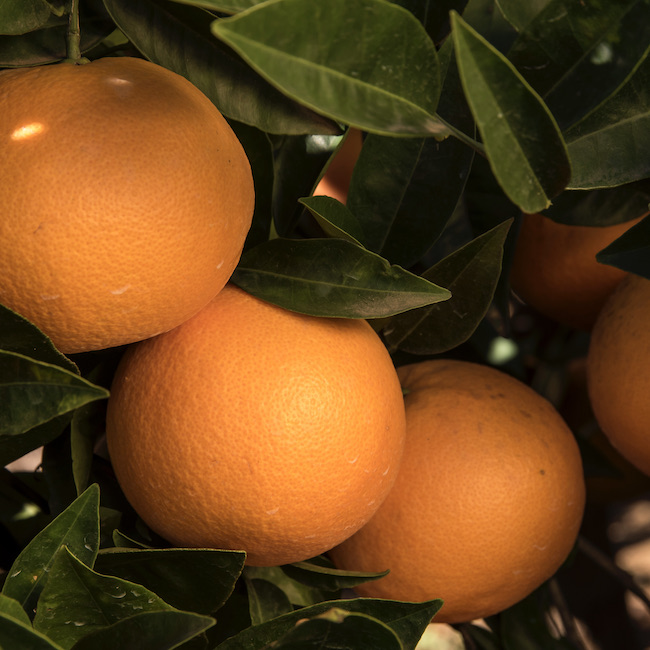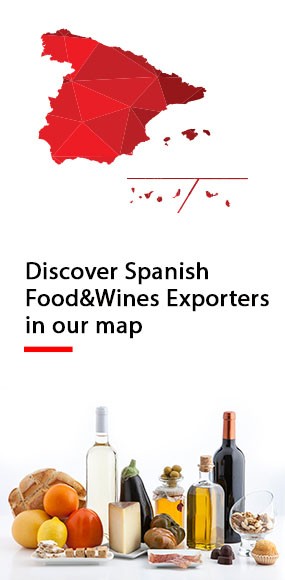.png.transform/rendition-xs/image_image%20(1).png)
Spanish Citrus Fruits, a Colorful Health Boost
Oranges, tangerines and lemons not only provide a delicious flavor, but they also offer many health benefits.
In his 1900 novel entitled Entre Naranjos (Among the Orange Trees), Valencian writer Vicente Blasco Ibáñez describes a daytime scene in his home region, highlighting how the sun "ripens the clusters of fiery oranges like a golden harvest." This is not just a poetic allusion to the importance of this fruit in Valencia, but also a way to highlight their economic value for this region on Spain's Mediterranean coast. Valencia contributes decisively to Spain position as the fifth-largest producer of citrus fruits in the world and the largest exporter, according to data from the Food and Agriculture Organization (FAO), with 1,756,860,000 kilos. More than half of Spain's production is exported.

Indubitably, the climate in Spain and, more specifically, on the Mediterranean coast, is ideal for producing oranges, mandarins and lemons. Citrus fruit needs heat, many hours of sunshine, and warm winds. That is the "climatological cocktail" required to grow ripe, tasty fruit with enormous health benefits. You might say that Hippocrates was thinking of an orange or a mandarin when he said his famous phrase, "Let food be thy medicine."
According to the Alimnova Research Group, at Madrid Complutense University's Department of Nutrition and Food Science within the College of Pharmacy, citrus fruits stand out for their high water content and are a source of vitamin C, which plays an important role in the normal functioning of the immune system. Additionally, their consumption helps reduce tiredness and fatigue, so they're especially recommended for athletes. Vitamin C requirements increase in certain physiological situations such as pregnancy and lactation, with the result that consumption of citrus fruits is recommended for pregnant and/or nursing women.
Vitamin C also helps with the formation of collagen, an important protein for the proper functioning of bones, cartilage, teeth and skin. Moreover, this vitamin improves the absorption of iron from food and, due to its antioxidant activity, protects cells against oxidative stress.
Citrus fruits are also an important source of fiber, which contributes to the proper functioning of the gastrointestinal tract, and also has a satiating effect. Oranges and mandarins contain vitamin A (in the form of provitamin A), which is essential for proper maintenance of the skin, vision and mucous membranes. Given that the middle of the citrus season occurs between November and April, citrus fruits are phenomenal allies for dealing with winter colds and flus.
A benchmark of quality
"Spanish citrus fruits are absolute export leaders in the global market. Although Europe is by far their main destination, Spain has an incomparable offer in terms of range and calendar," according to the cooperative Anecoop, which is one of the country's main citrus fruit companies. According to Anecoop, the most in-demand fruits are "oranges, mandarins and lemons, in that order. Although oranges have stabilized in the world market, mandarins are growing moderately and lemons have grown a lot in recent years."
Within Europe, demand for citrus fruits is the greatest in Germany, followed by France. In addition to fruit, Spain also exports processed products: "mostly juices, either frozen and not from concentrate, made from concentrate, and freshly squeezed. In some cases, the supremes are canned. Essential oils and some aromatic compounds are also extracted," according to Anecoop.
The cooperative also points out that citrus fruits from Spain are "high quality" and "world-renowned." Additionally, there are many different ways to grow them: organic, with integrated production, without post-harvest treatments, and with zero chemical residues. However, Anecoop considers it to be "a sector with some organizational difficulties in production due to the traditional structure of property, the aging of some producers, and the lack of coordination of several sectors involved. Foreign competition may intensify in the product range that is highly price oriented."

Cítricos Valencianos PGI, ensuring quality
Logically, a product as recognized as Spanish citrus fruits must have a quality seal. The Cítricos Valencianos PGI was created in 1999 to certify that the fruit meets all of the established requirements, both in terms of origin and quality guarantees. It has two main objectives: to certify and to promote Valencian citrus fruits.
This PGI is responsible for certifying oranges, mandarins and lemons grown in a production area, consisting of suitable land in towns in the provinces of Castellón, Valencia and Alicante. It is in this area where the growing tradition, of which there are written records dating back to the 14th century, includes the know-how to achieve the highest quality. It is set out in the PGI's specifications that "The technical skills of Valencian farmers and an outstanding understanding of the crop and the characteristics of the soil make it possible to achieve a perfect state of trees and development of the fruit." According to the PGI, oranges have "differential organoleptic characteristics, both in flavor (acidity/sweetness) and color (more intense orange), aromas and juiciness. Valencian oranges have a thin skin, few spots, and external lesions." This same quality can be found in mandarins, while lemons stand out for their "excellent juice with high acidity, more intense yellow color, and extraordinary fragrance." A complete symphony of sensations, which is also a powerful healthy cocktail capable of protecting our health.
Author: Javier Sánchez/ @ICEX

